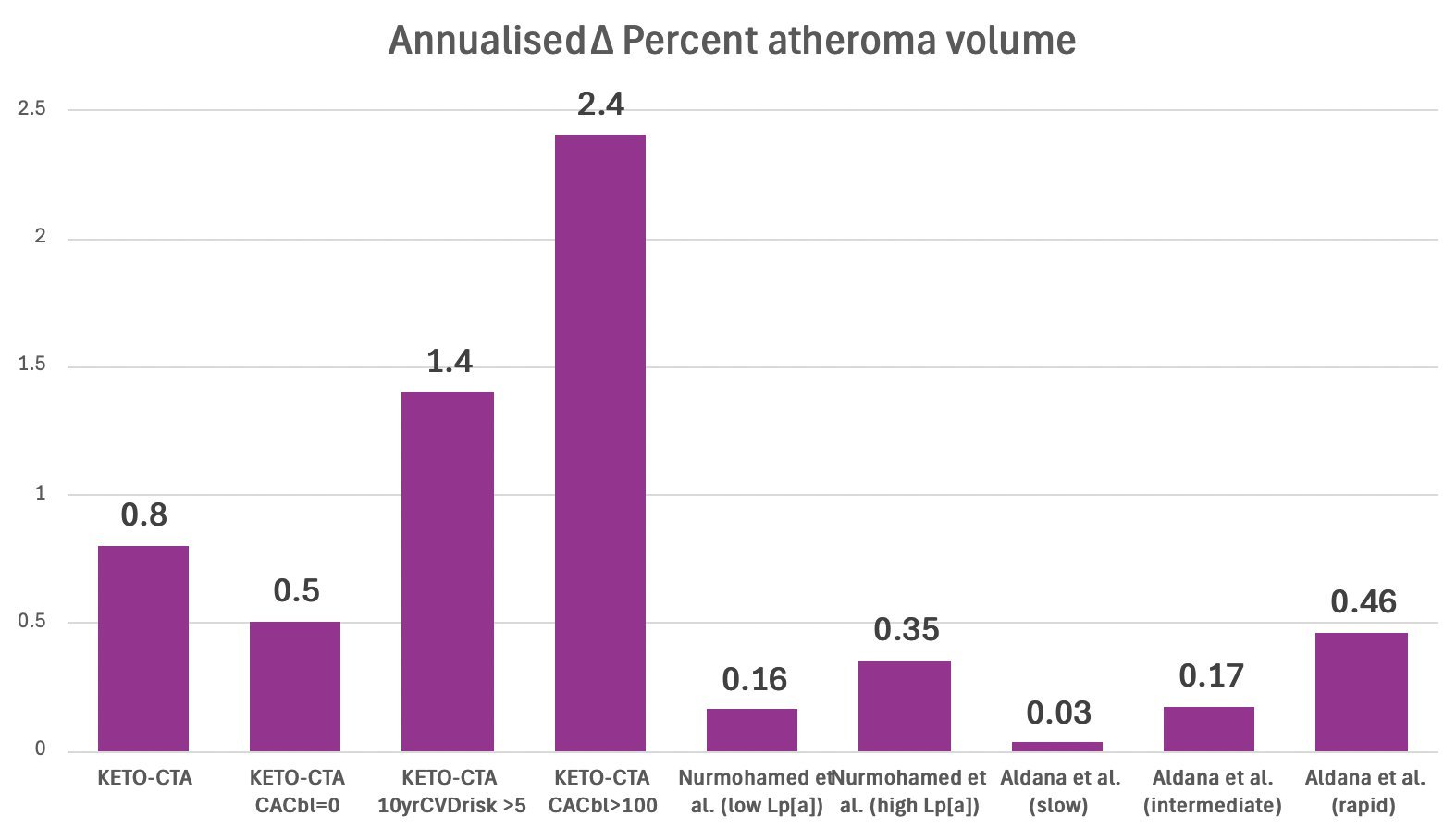They basically wanted to study the "Lean Mass Hyper-Responders" group- healthy, fit looking people who develop high levels of LDL cholesterol on Keto diets (not everyone on Keto does). Their hypothesis was that this is fine in this subgroup, despite reservations from traditional medicine practitioners that every other genetic condition that results in highly elevated LDL levels results in rapid progression of coronary artery disease and heart attacks.
Unfortunately they hid their primary end-point, which any scientist will tell you is a huge unethical no-no.
In fact the healthy participants in the study showed marked progression of coronary plaque progression on keto, much more rapid than seen in similar healthy cohorts:


Now the lead author is claiming he never signed off on the study and other authors making other silly excuses, and others stating they left the study early for ethical concerns (can follow the controversy on twitter).
...
My point is not to say you should not be on a keto diet- I often recommend it to patients myself, particularly if you have diabetes/epilepsy/morbid obesity etc. Just be aware that it is NOT without controversy. Particularly if you are a "hyper-responder" that develops very elevated levels of LDL (again this is not everyone on keto)- you may be at higher risk for CVD progression.
Remember that just like big pharma, most of the big keto influencers online are also trying to sell you something- their diet books, diet plans, multivitamins, training programs, or simply influence. For every magic health transformation you hear online about online, we hear whispers from cardiologists about very young patients on controversial diets who end up presenting with heart attacks. Cardiologists generally make zero prescribing generic statins but do quite well placing stents.
Decent youtube summary: https://www.youtube.com/watch?v=ZDr4iFqENgc
Decent twitter summary: https://x.com/MichaelAlbertMD/status/1916175837549731889